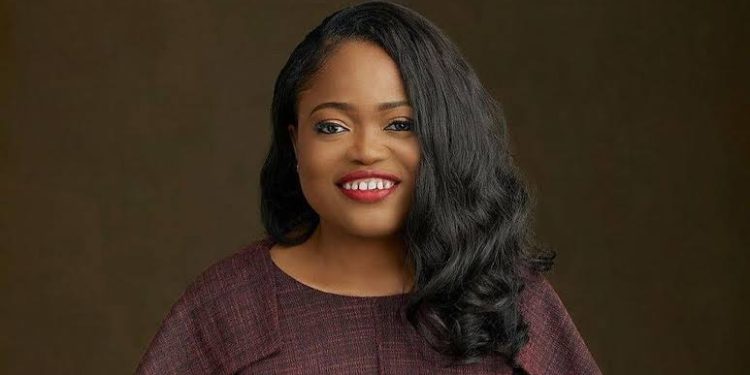Oluwatosin Olaseinde, the founder and CEO of Money Africa, discusses the dynamics of personal finance and the main issues facing Nigerians in this conversation with DEBORAH DAN-AWOH.
To stabilize the value of the naira, the CBN has been intervening in the economy by giving banks with foreign currency. Can this help maintain the value of the naira over time?
At most, the CBN should be concerned with the government’s foreign exchange needs; it should not be the CBN’s responsibility to provide banks with foreign currency. For a brief time, the Central Bank of Nigeria can help stabilize the value of the naira by providing banks with foreign currency. However, this action might not be sufficient on its own.
The government would likely need to implement a broader range of economic policies (export expansion policies) to support the naira and help to promote sustainable economic growth. What matters isn’t how many Naira exchange for a dollar. Rather, there should be relative stability.
Should the naira be devalued or the parallel market continue to allow it to operate with the official rate of the naira?
A parallel market exists for two reasons: The official market isn’t meeting all legitimate forex needs on a timely basis. People can also sell remittances at a much higher rate than the official market offers. It is normal human nature to pursue the part of the best profit. Once you fix this and part of the solution is a devaluation, you will have less demand at the parallel market. Allowing the parallel market to continue operating with an official rate for the naira could potentially lead to a situation where the official rate and the parallel market rate for the naira become misaligned, which could create confusion and uncertainty in the economy. Devaluing the naira, on the other hand, could help to align the official rate with the market rate and help to reduce the gap between the two.
However, devaluing the naira could also have negative consequences, such as making imported goods more expensive and potentially leading to higher inflation. Oluwatosin Olaseinde
We must also take enforcement seriously. We simply shouldn’t have people hawking forex like soft drinks. Fixing demand should solve that in addition to law enforcement.
We also should bring back BDCs. This time they should source their own forex and strictly meet all KYC rules.
I don’t see why for relatively small needs say between $100 to $5, 000 people are going to the bank. BDCs can solve that. Oluwatosin Olaseinde
As a professional in the personal finance space, what major challenges exist for most Nigerians in taking charge of their finance?
Personal finance is in the best interest of everyone. Also, people want to see an immediate impact. It’s like going to the gym. It is a long-term play. So, the biggest challenge is that people want immediate results.
Another question we get is, how can I invest so I can get N500, 000 every month? And If you ask them how much they want to invest? They usually have just N1m to N3m, and I do not mean this in a disrespectful way. Oluwatosin Olaseinde
So what you’re asking for is a miracle. Only a Ponzi scheme can give them the kind of return with the kind of capital they have. So, how do you educate people and be like, contrary to what everybody hears, building wealth is a long-term play? Not everyone can live for three months without a job. So, this passive income we all fantasize about, many of us are not there yet. Even though I am not there yet. I cannot afford to quit.
Now I have to keep working; it is a truth that many people are not ready to face. They don’t want to accept it, and that’s where the problem is. So, in summary, the return that individuals desire is higher than what is reasonable; in one way or another, bad experiences, such as the stock market, also influence them. The bulk of work lies in changing the human perspective on saving and investment. Oluwatosin Olaseinde
What options exist in the financial market for young people to invest in financial freedom?
The first option that exists is education. If you jump into it without educating yourself, you will be back where you are. It’s like building a house, the foundation is not good, and then the building collapses; of course, we don’t want that. First, we want them to build a solid foundation with the right education.
Now once you’ve gotten the right education, right, we want to start inculcating good habits; people are waiting to blow. Start with the N5, 000 every month and N10, 000 every month. What it’s doing is teaching you the discipline so that when the bigger money comes, you can channel it well.
So, do not wait until you blow before learning how to manage money. Thirdly, everyone has to start from somewhere. You have to take action. First, you draw up that budget plan; how much is coming in? How much is going out? Are there any leakages that I can block? Then we block the leakages; imagine working so hard, but there is leakage letting all your effort be in vain? Four, we need a long-term outlook.
So the long-term outlook is very important if you want to play a long-term game. You are especially doing it so that you can pass generational wealth to our children.
Propagating the message of financial literacy has been a struggle seeing that a 2015 Nigerian financial survey said 31.1 per cent of financial illiteracy exists in urban areas while 68.5 per cent abound in rural areas. Oluwatosin Olaseinde
What methods can be employed to bring this learning to the grass root?
For companies like mine, I see many of us doing it as a CSR. Now the thing about CSR is this. CSR means that you do not plan to monetize. It’s a one-off thing. And it’s not consistent. What you do not put a lot of expectation into, it’s hard for you to be able to track it. Now when people do that, play. That is, they’re going to rural areas. They already see what they can monetize. For instance, if you look at microfinance loans, they have deep penetrations there; LAPO and the rest of them know how the market works and can get their money back.
Meanwhile, if you are thinking, I want to educate them, many people might not want to go that route because they can’t see how they can’t see a path to monetisation. In summary, how can we get to these areas? By playing the long-term card, where we don’t treat it like a CSR where we’re intentional, right? Even though we cannot monetize it today, those people might have the resources to pay for that service.
The next three years, next five years, we play the long-term games and still do the education, or those currently offering them services that they are monetizing should then offer them that education because they are already monetizing in one way or the other.
According to a Next Gen 2022, there’s no finance report in the US 22.7 per cent of high school students have access to courses on personal finance. So do you think these models should be emulated in Nigeria?
Absolutely, and that is why we are also building our company’s kid service. Every time we teach adults about money, they end up spending their 20s and sometimes early 30s trying to figure it out, but if we get to the children early to play a long-term game, catch them in schools, catch them in primary and secondary schools, look for how to inculcate it into the system. We’re helping build adults now be able to manage their money better; then again, it is a long-term plan and is very important.
In a bid to salvage finance, Nigeria has become a hotspot for Cryptocurrency trading. From a personal finance perspective, is this a sustainable venture?
It depends. We must remember that cryptocurrency is a high-risk asset, and there is no regulation. So if it goes haywire,, we see that the impact is high. It is more advisable for people that have a safety net.
So imagine me not having any form of safety there, meaning that if I were to lose my job now if anything was to happen, I would be back on the street. This means I have no business participating because of the risky nature of it. Could you look at FTX?
Everything looked like it was okay, well funded, amongst others. Yet, people lost billions of dollars. So it’s a high-risk asset. I see why people embrace it because you can earn interest in dollars. You can use it to preserve your money and fight inflation. But other ways minimize that risk. So here’s my take.
Am I saying no to cryptocurrency? The CEO Of Money Africa, Oluwatosin Olaseinde asked?
No, I am not. It’s a luxury kind of investment in the sense that it is for those that have safety nets, for even those that have safety nets. They’re measuring the size of their portfolio, usually, something like five per cent or thereabout because of the high-risk nature of it that if they lose it, what’s going to happen? And everybody must always bear that in mind. What happens if I lose it?
Ponzi schemes and fraud have increased, with more individuals falling prey. Is any of this tied to poor knowledge of financial systems?
It is a 50/50 situation. Some people walk into it without knowledge of the alternate options that exist. We need to start showing people the options. What are they looking for? Looking for higher interest rates? Some options will not give you that unrealistic amount. For example, sometimes they promise them as high as 30 per cent monthly.
That is unreasonable. Because it is about 360 per cent a year, who can afford to give anyone that? So we should start educating people about options for long-term play. People want good returns so show them the options. So, even if they are taking risks, it’s not an outright Ponzi.
Is it risky? Yes, but there could be high returns there. The important lesson here is to paint the picture that building wealth is a long-term journey eventually, you will get there, but not as fast as the other options will give.






















